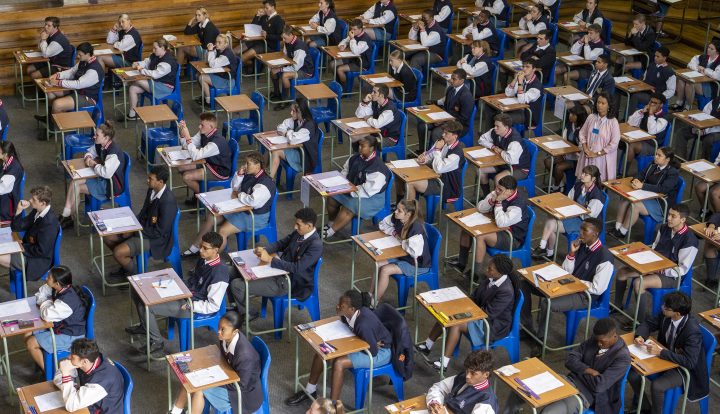THE CONVERSATION
My child isn’t happy with their final exam results. How can I support them?

The way a parent or caregiver responds in this situation is extremely important.
Every January, the day arrives that South Africans know can decide their fates: the “matric” exam results are announced. In 2022, 753,964 full-time and 167,915 part-time candidates registered to write the secondary school exit exam – the largest cohort ever.
Many probably feel ambivalent about this massive moment in their educational journey. On the one hand, there is a feeling of completeness because the school years are done. On the other, there is a basket of emotions: stress, anxiety, and excitement at the prospect of the unknown. Matrics (or Grade 12s) and their parents know that the National Senior Certificate, issued when matric is successfully completed, is a ticket to the future.
The results dictate whether you qualify to apply to a tertiary institution or not; this is a big deal in a society that sees university qualifications as the ideal (or only) path to wealth, image and fame. University qualifications are also viewed as superior to vocational training.
So, those who don’t achieve the required matric marks will not be able to attend university. It can shatter dreams and cause huge disappointment, along with feelings of failure, hopelessness and helplessness. The way a parent or caregiver responds in this situation is extremely important.
As a researcher specialising in parent-child relationships, here’s my advice for guiding children through what can be a tough, scary and disappointing time.
Positive support
There are four key things your children need to hear if they are disappointed and feel like a failure:
- Getting up after a fall is important
- Success is relative: everyone is different and has different abilities
- There are many ways to achieve success other than getting a university degree
- As a parent, you believe your child is capable of doing anything.
This kind of positive, loving support is critical. The research I’ve conducted with various colleagues shows that parents are important in adolescents’ decision-making, life goals and aspirations. They also play a key role in shaping teens’ psychological wellbeing, as well as modelling both healthy and risky behaviours.
Negative parenting practices like rejection, neglect, psychological control, pressure to perform, overprotectiveness, and indulgent parenting are associated with difficulty in making good decisions. Children may panic about making decisions, become indecisive – especially about career choices – or make risky decisions.
It is normal for parents to be disappointed that their child’s results were not as expected. However, as a start, take a deep breath and realise that your child is struggling to come to terms with their results, too, and may believe they are a failure. This is not the time to scold and berate them about not achieving.
Remember, the Grade 12 year that’s just passed has, by and large, been about achieving success and feeling the pressure to perform. This situation just amplifies their stress and anxiety.
Taking a deep breath allows for calmness in your approach to supporting your child. A more positive approach, which includes being responsive, supportive, approachable, encouraging and understanding, would be very helpful as a start to diffusing a very emotional situation for your child.
Room to talk and plan
Allow your child to talk about how they’re feeling about the outcome, without interrupting. It would be a good idea to find out if your child has thoughts about the way forward. This could be the first of a few paced conversations over a few weeks. This will allow for some perspective and give your child the chance to think things through. That helps them to develop feelings of ownership in decision-making as well as boost their confidence and competence. This is important for the satisfaction of psychological needs to achieve psychological wellbeing.
If they haven’t thought about what comes next, you could consider exploring the options together, building a plan B and C since plan A was not achieved. For instance, your child could request re-marks for subjects where they expected to perform better. Or they could enrol for the Department of Basic Education’s Second Chance Programme.
Monitor your child and their wellbeing in this time. You may feel that you need to draw in others, such as a counsellor, psychologist or social worker, or a teacher or friend your child is close to, to help map out the next steps, providing options or just as additional support for you and your child. DM/ML
This story was first published in The Conversation.
Nicolette V Roman is the South African Research Chair (SARChI) in Human Capabilities and Social Cohesion through the family based in the Child and Family Studies Unit in the Faculty of Community and Health Sciences at the University of the Western Cape.


















Comments - Please login in order to comment.